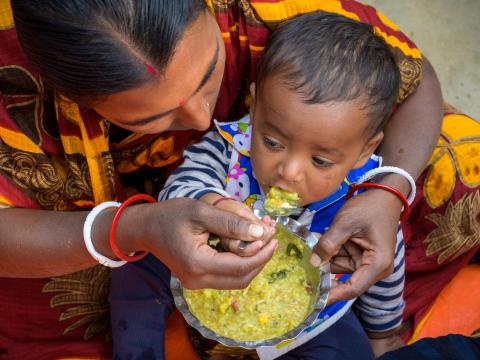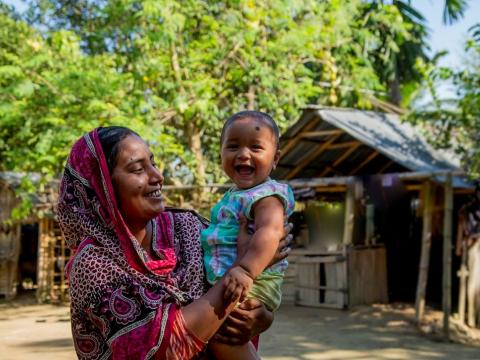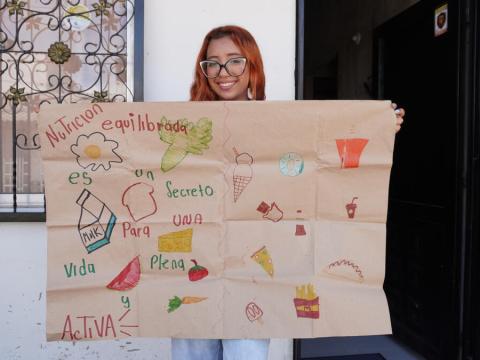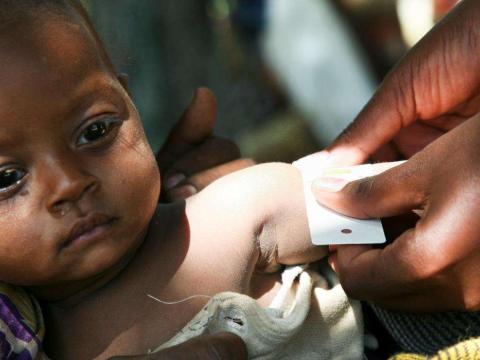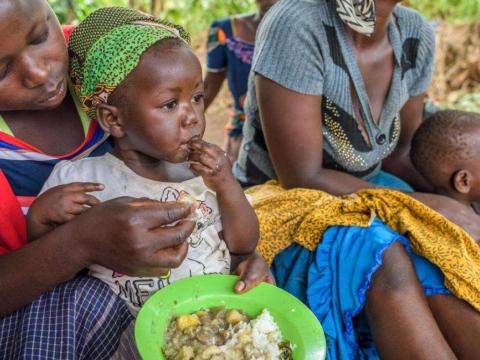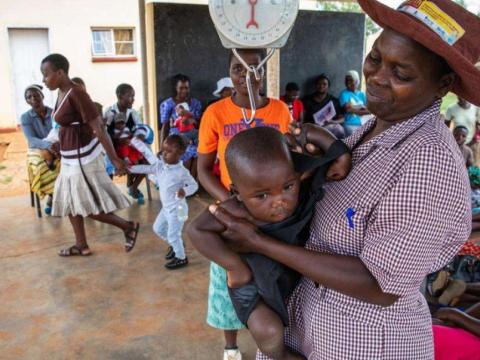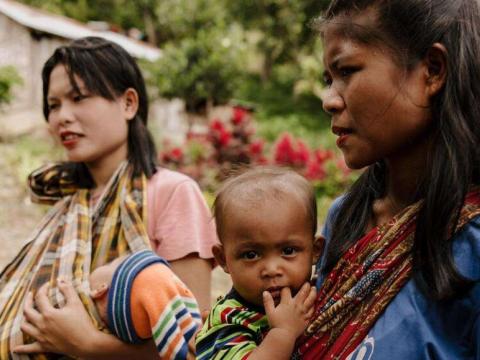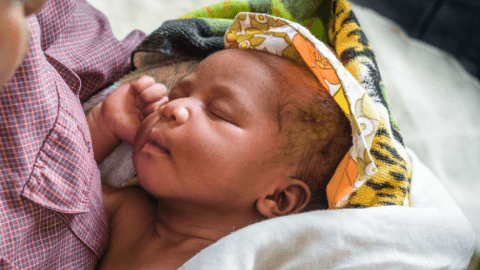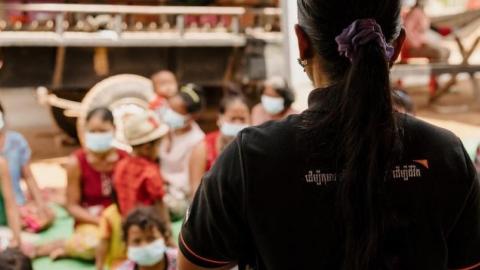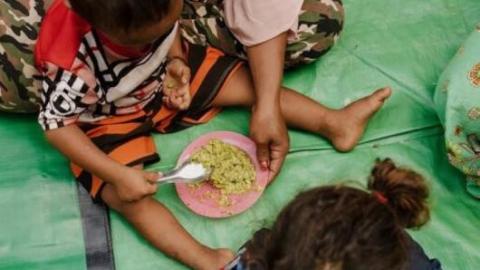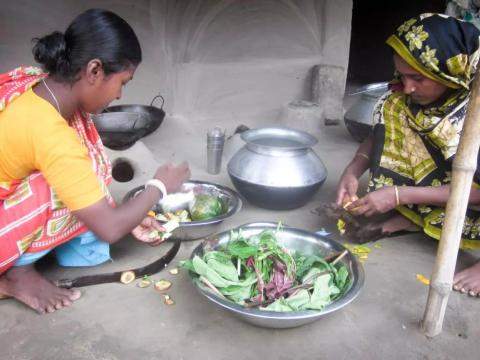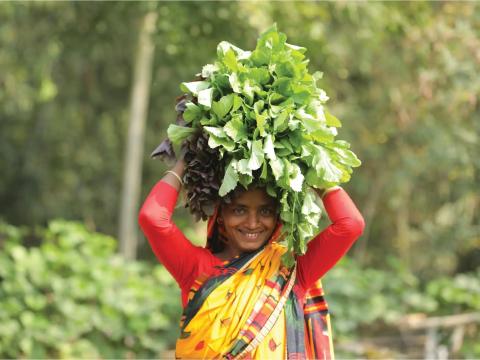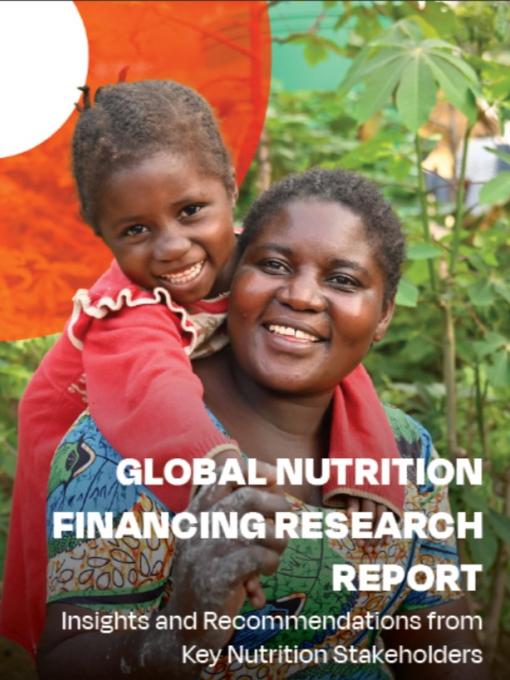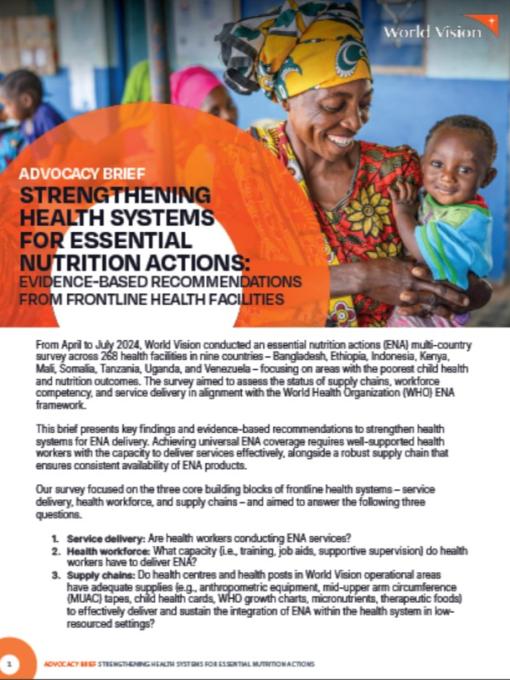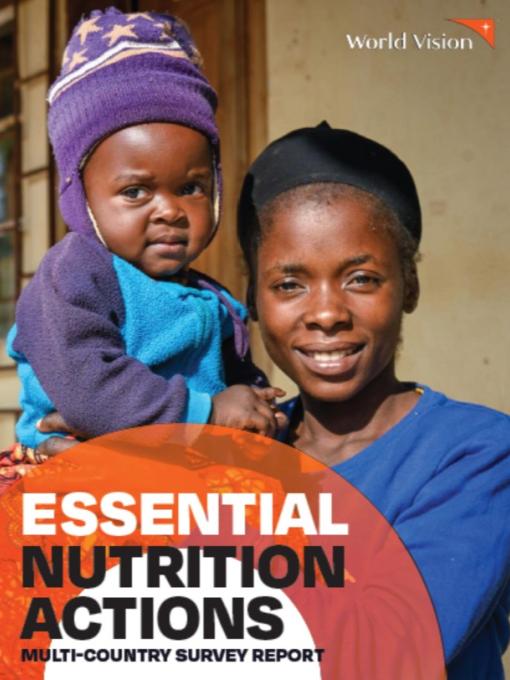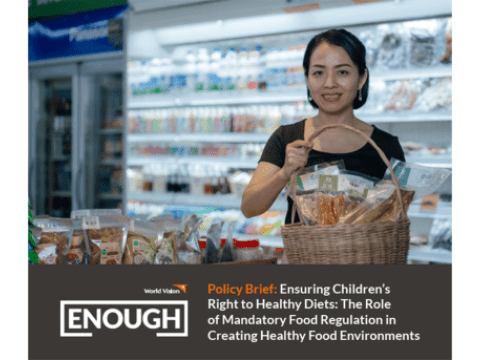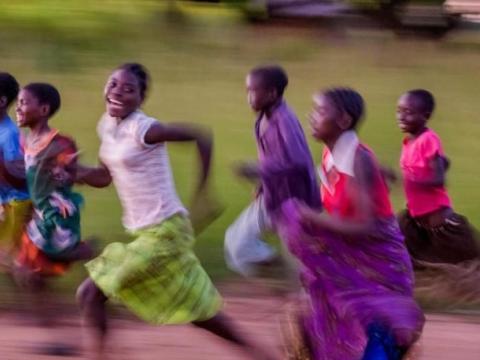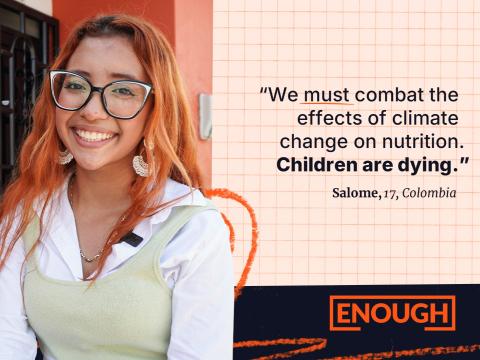
Nutrition
Our Impact
A world where all children are nourished
At World Vision, we believe that no child should suffer or die from malnutrition – a preventable condition. Across more than 30 countries, we’ve helped severely malnourished children recover and regain their health. In over 40 countries, we’ve used local, food-based solutions to rehabilitate underweight children and build resilience in their communities.
We’ve empowered parents to detect early signs of undernutrition, helping prevent needless child deaths. We’ve supported the creation of Women, Adolescent and Young Child-friendly Spaces in emergency settings – safe places where women receive breastfeeding support, counselling, and practical care.
We’ve seen lives transformed. But the work is far from over.
Children continue to die from preventable causes driven by violence, displacement, and poverty. Families still lack access to basic nutrition services and knowledge. We are committed to changing that.
World Vision is working to:
- Promote adequate nutrition for children, women, and adolescent girls
- Strengthen health systems and communities to better serve the most vulnerable
- Distribute ready-to-use therapeutic food (RUTF) to treat severe malnutrition
- Equip families with knowledge on nutrition and appropriate complementary feeding
Together, we can restore hope and build a future where all children are well-nourished and thriving.
Our Approaches
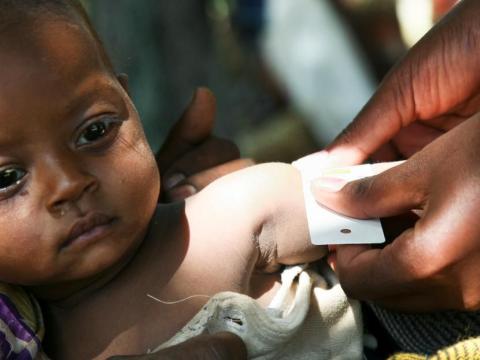
Addressing Wasting
Since 2005, World Vision has helped prevent and treat wasting in 32 countries, using the CMAM model to equip communities to care for malnourished children.
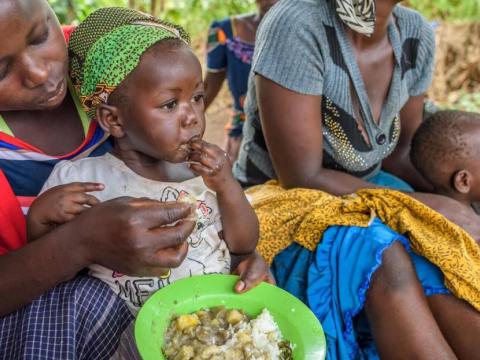
Food-Based Approaches
Positive Deviance/Hearth (PDH) uses locally available, low-cost foods to treat and prevent malnutrition in children under five and build community capacity for lasting impact.
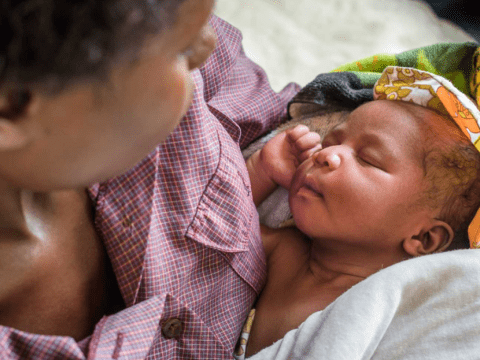
Infant and Young Child Feeding
We protect and promote safe infant feeding by supporting exclusive breastfeeding and optimal complementary feeding to prevent and treat malnutrition.

